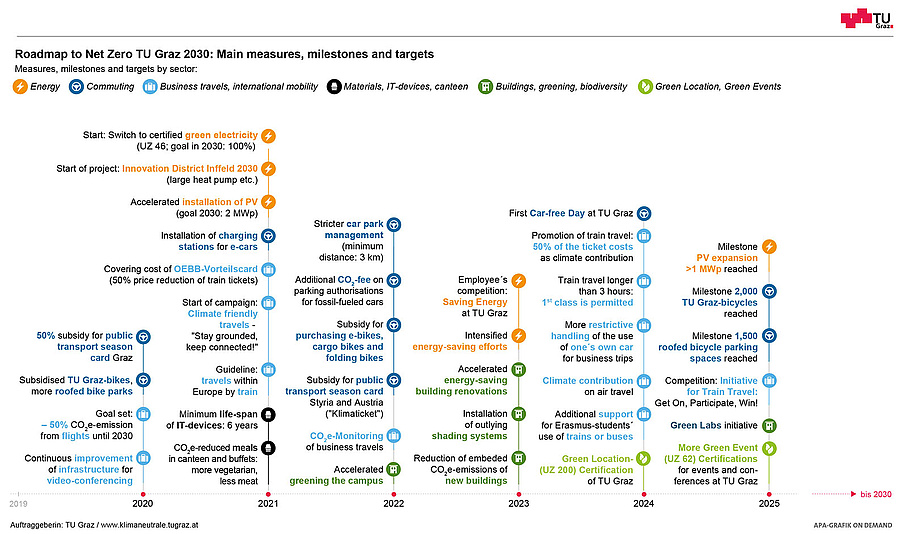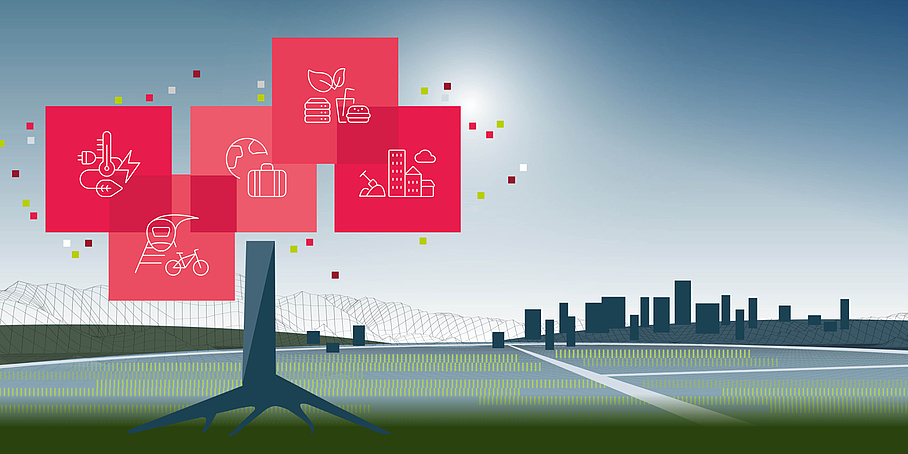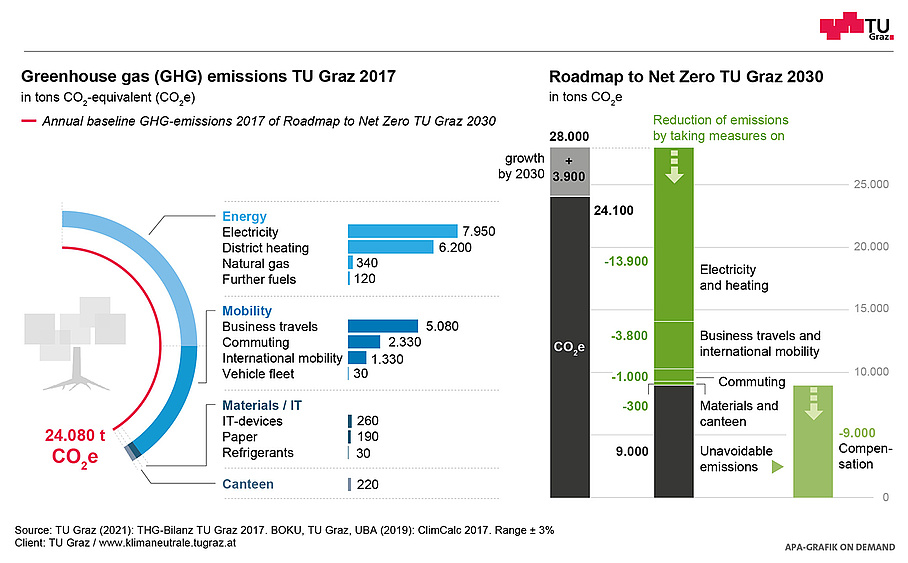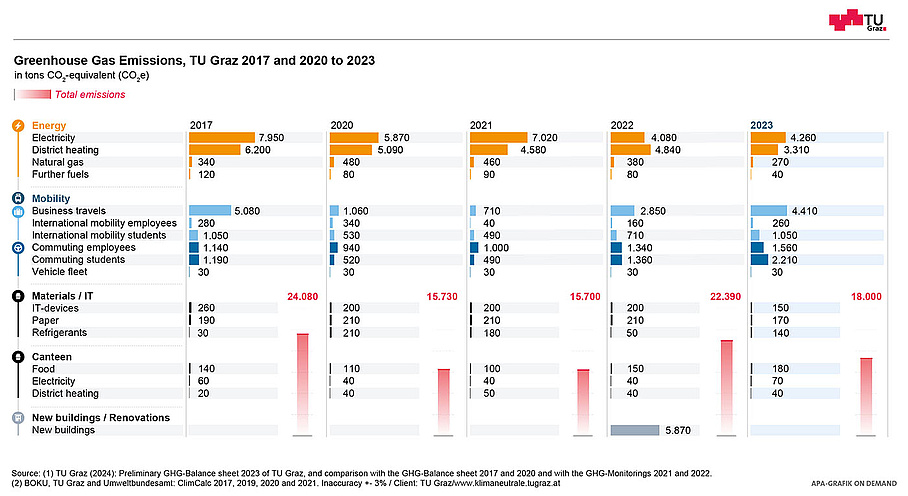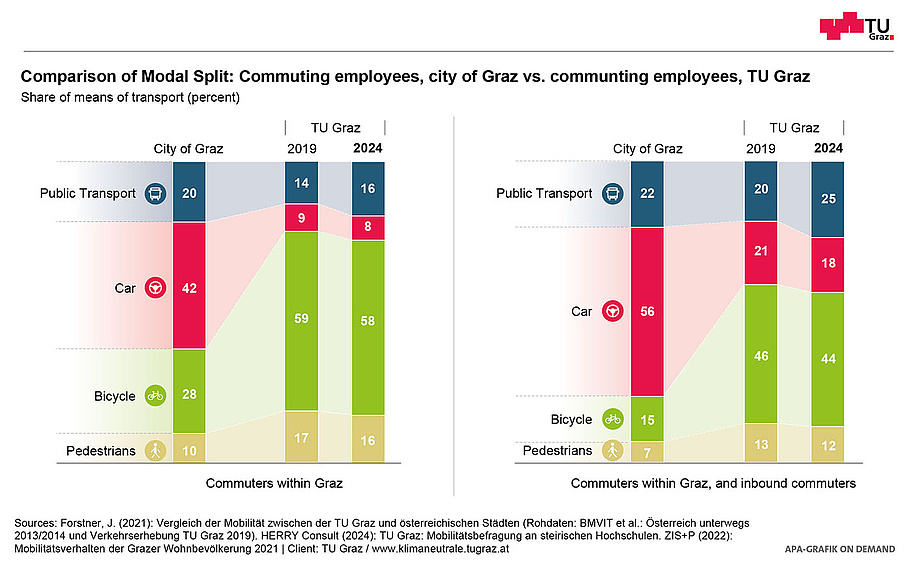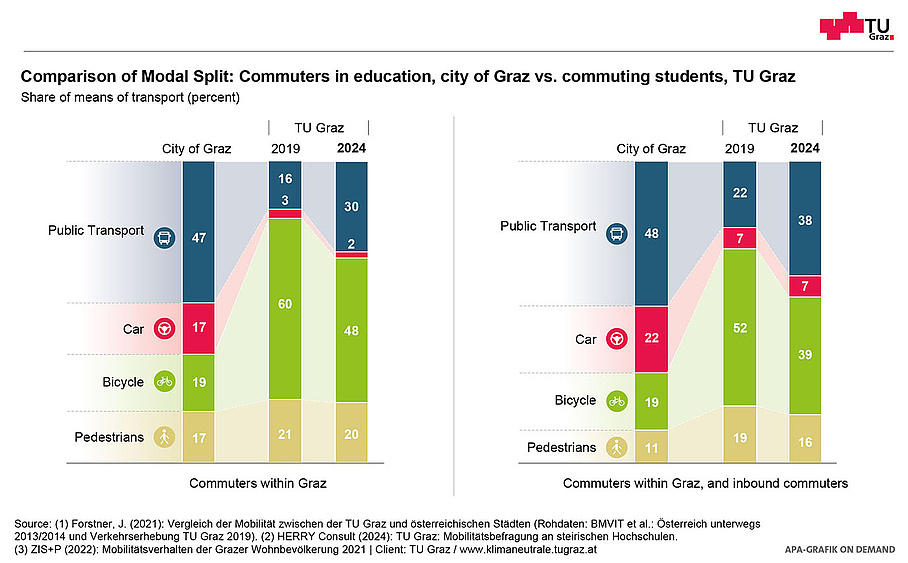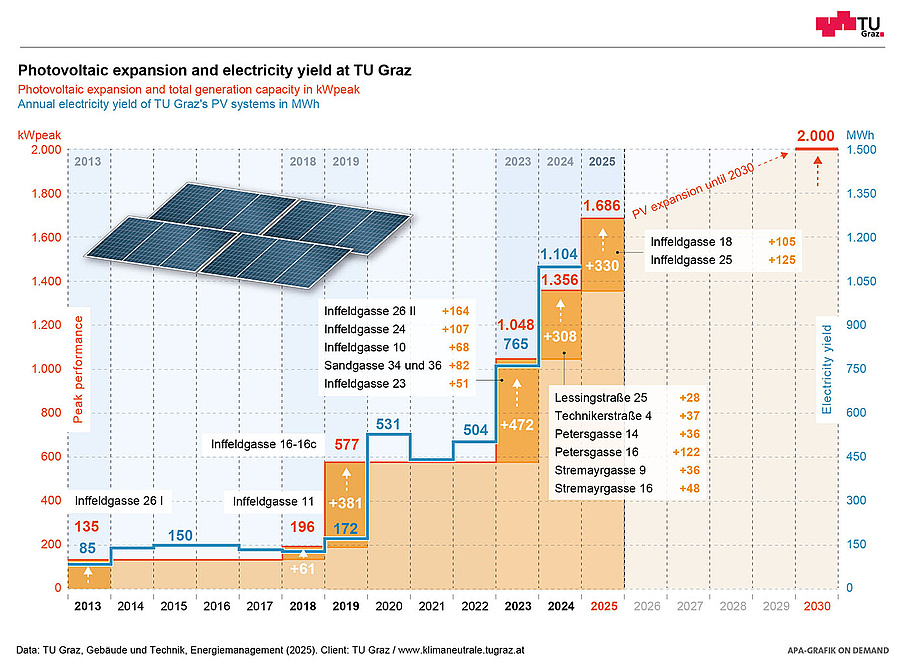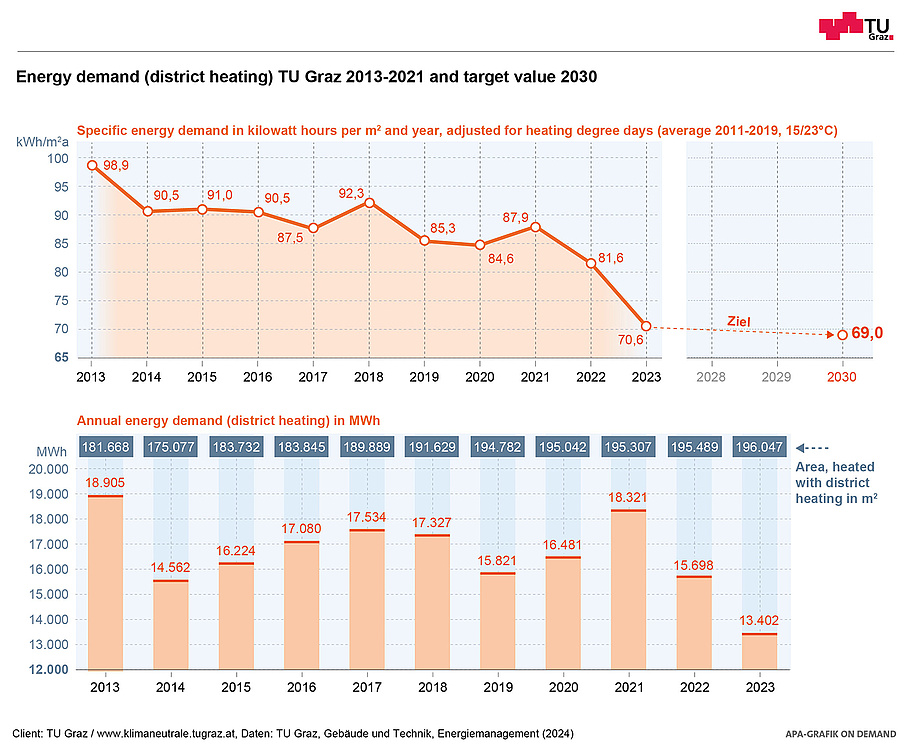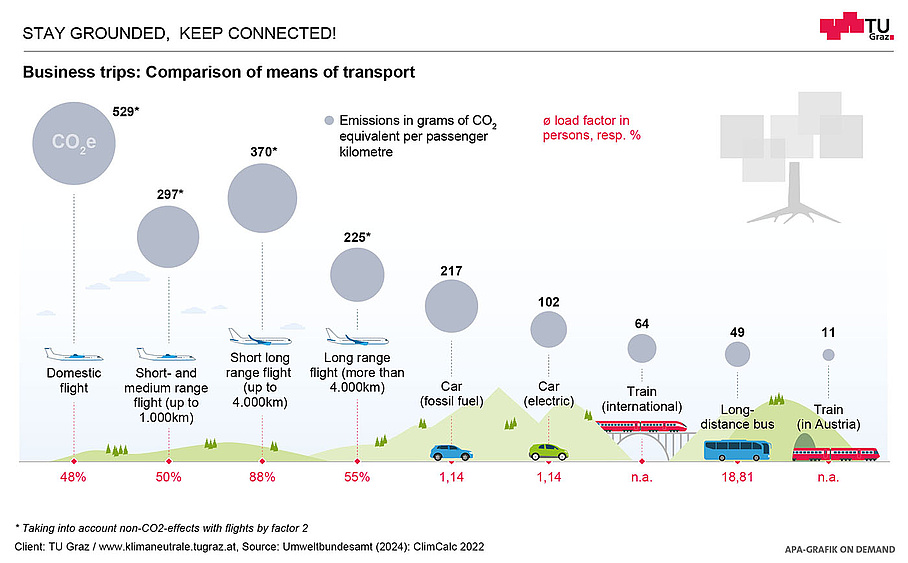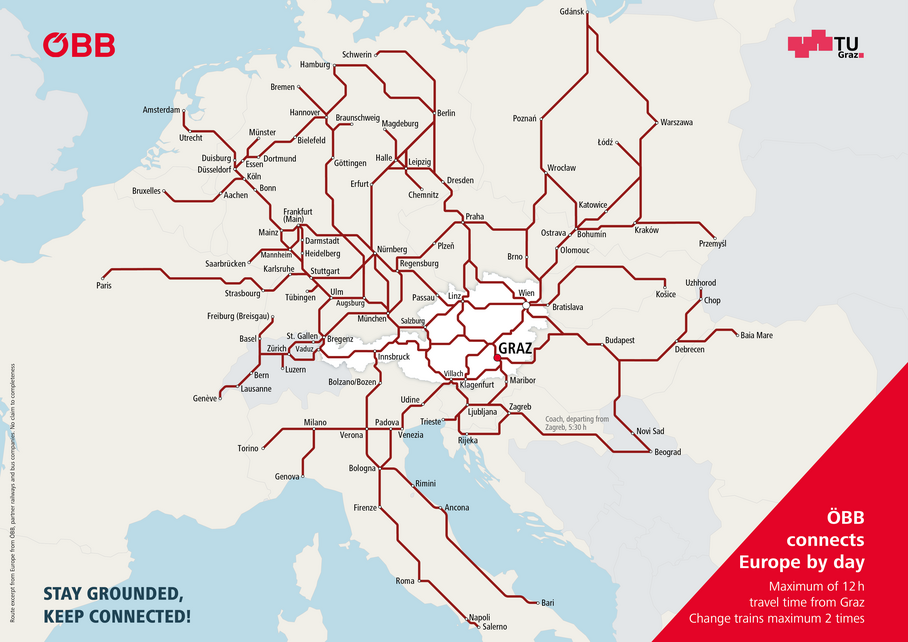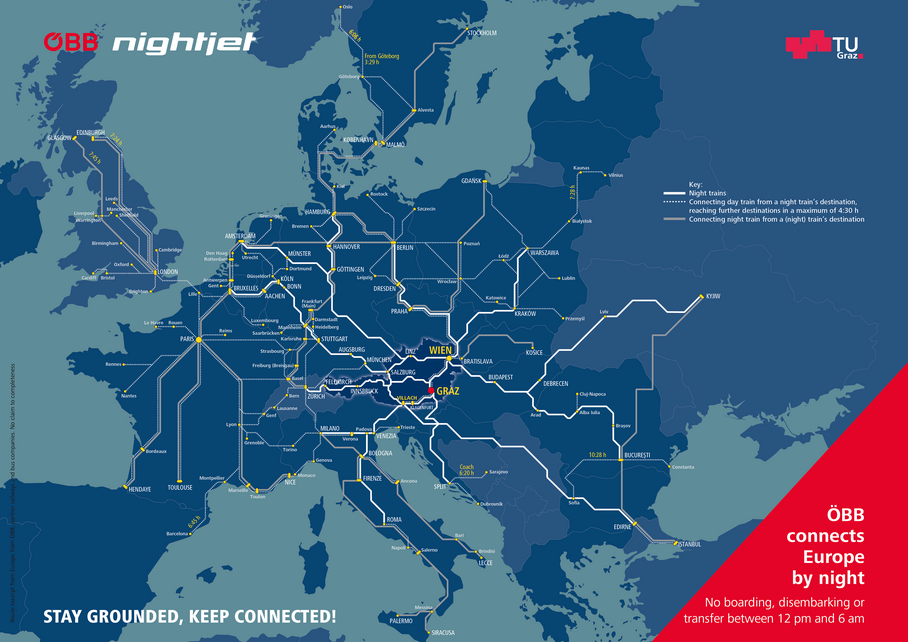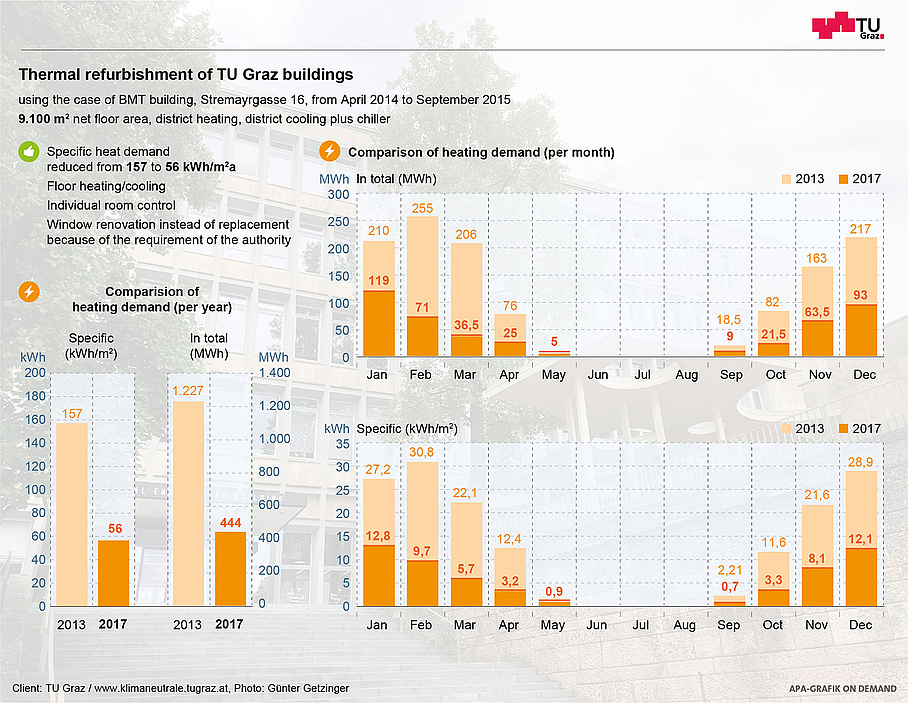Progress and Evaluation Reports
Since the start of the project a lot has already happened on the way to climate neutrality. This is documented in the progress and evaluation reports:
- Zweiter externer Evaluierungsbericht des österreichischen Umweltbundesamts (in German), January 2025
- Third Progress Report to the Rectorate, July 2024
- Second Progress Report to the Rectorate, February 2023
- Erster externer Evaluationsbericht des Wegener Center (in German), October 2022
- First Progress Report to the Rectorate, December 2021
Mobility Management
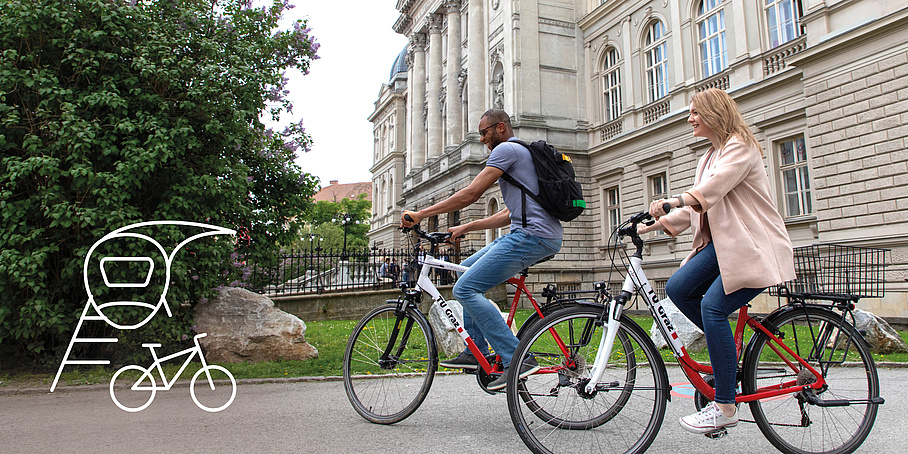
Mobility Management
The award-winning mobility management of TU Graz, which is based on the promotion of cycling and public transport, is being further promoted and the incentives for switching to soft forms of mobility are being further increased.
Already, a record-breaking 40 percent of all employees at TU Graz ride their bikes to work. In the future, the TU Graz bicycle campaign will be expanded to include the promotion of e-bikes, cargo bikes and folding bikes, the expansion of the bicycle path network around the campus will be promoted together with the City of Graz, and additional covered bicycle parking facilities will be built at all campus locations. For electric cars, more than 200 e-charging stations will be installed on campus and the e-car sharing service will be further expanded.
The use of public transport by TU Graz employees is promoted by subsidies for the Graz annual ticket, the Klimaticket Styria and the Klimaticket Austria. Parking permits for the three campus locations will only be issued - except for social reasons - if the distance to the workplace is more than four kilometres. A climate protection fee is charged for parking fossil-fuelled vehicles.
Energy
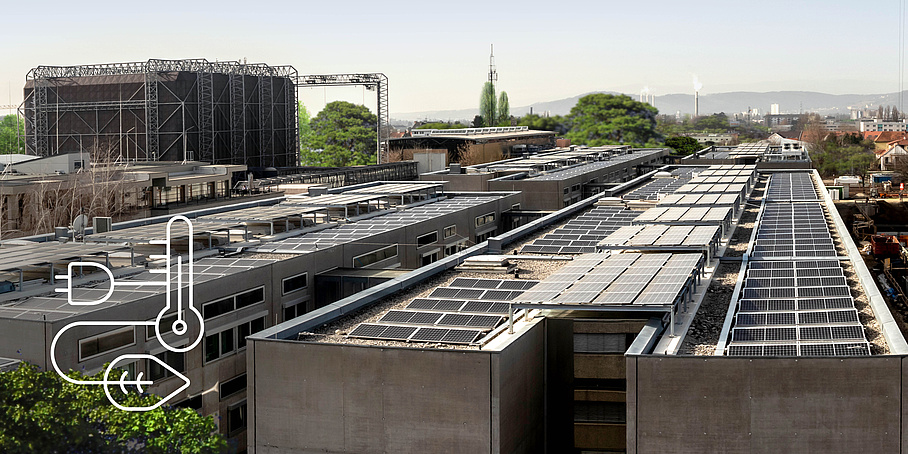
Energy
In energy management, TU Graz focuses on energy savings by increasing efficiency and on the production of green energy on- and off-campus. For example, roof areas at Campus Inffeldgasse are being equipped with photovoltaic systems on a large scale and participation in external PV systems and wind farms is being examined. In addition, TU Graz is gradually – and from 2025 onwards exclusively – procuring electricity from 100 percent ecolabel 46-certified renewable and regional sources. Heat pumps and geothermal energy storage systems are used in new buildings, and the use of waste heat, for example from large computer systems, is being optimized. With these measures alone, TU Graz achieves an emission reduction of over 12,000 tCO2e per year.
The Inffeldgasse Campus will become a Living Lab for energy systems of the future, referred to as the Innovation District Inffeld.
Photovoltaic expansion at TU Graz
Business Travel
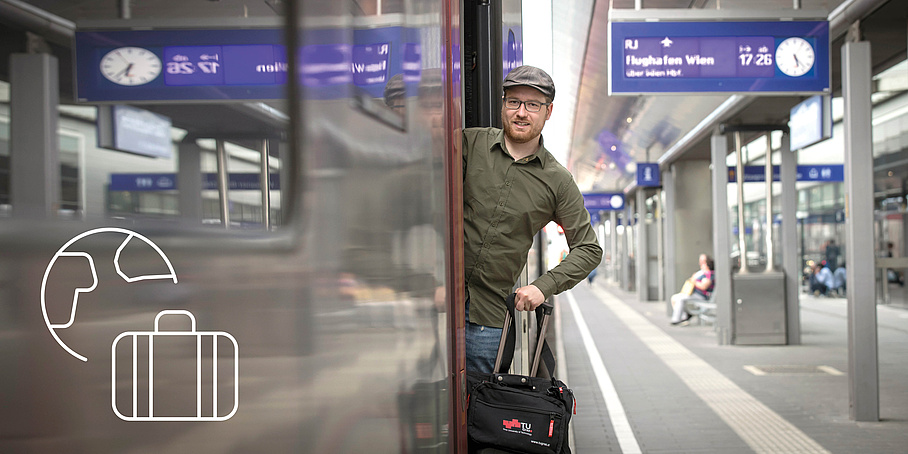
Business Travel
According to the motto Stay grounded, keep connected, a cultural change at TU Graz is aimed at further reducing the amount of CO2 emissions caused by travel (includes business travel and stays abroad).
Employees will be able to call up their individual carbon footprint via their own monitoring tool, and wherever it makes sense and is possible, video conferences will replace business travel. Air travel is to be kept to a minimum; for travel within Europe, rail travel is to be preferred to air and car travel.
The use of trains, long-distance buses and overnight trains is subsidized by TU Graz in order to avoid short- and medium-haul flights as far as possible, and a climate protection charge was introduced on flights. The goal is to reduce CO2 emissions caused by air travel by TU Graz employees on business travel by 50 percent by 2030.
Buildings
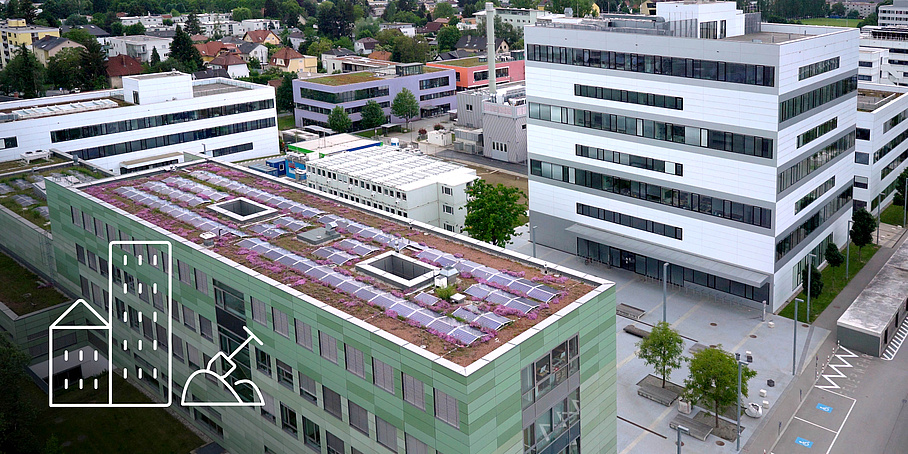
Buildings
For new buildings, TU Graz, in cooperation with Bundesimmobiliengesellschaft BIG (the public-sector property management company), is focusing on the climate-optimized construction of sustainable university buildings based on the position paper of the Alliance of Sustainable Universities in Austria. This provides for the integration of sustainability and climate neutrality right from the start of university construction projects, for example, as well as a life-cycle assessment and the climate-optimizing renovation of existing buildings. Greening measures at all TU Graz campus locations complete the plans.
Materials / IT / Cafeteria
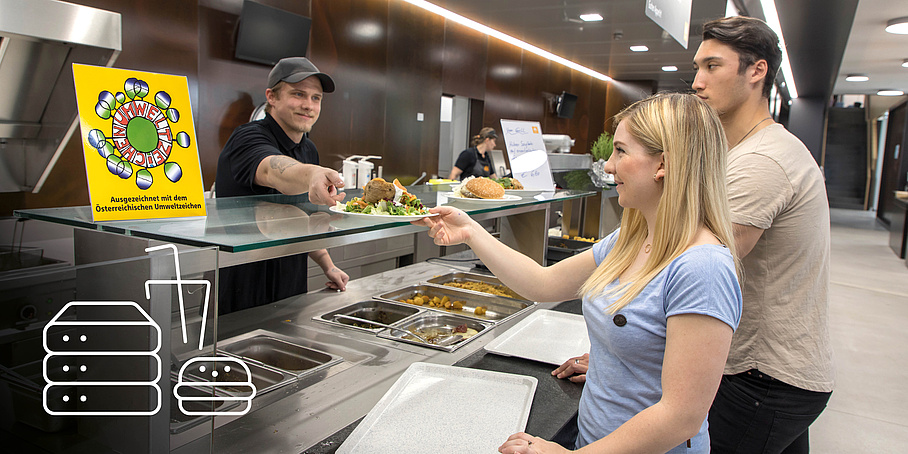
Materials / IT / Cafeteria
In future, the canteens (Mensen) will increasingly switch to low-GHG food, paper will be saved by means of a digital by default strategy and the useful life of IT equipment will be extended to at least six years.
Compensation
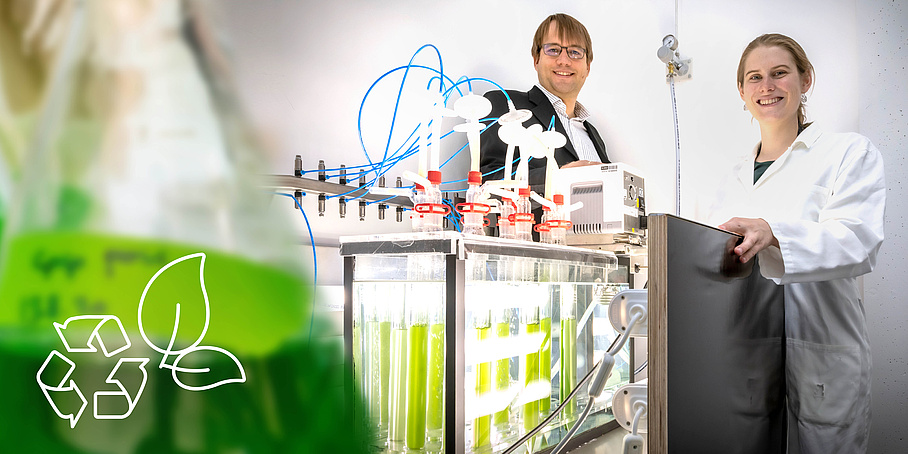
Compensation
TU Graz provides compensation models with regard to unavoidable GHG emissions. These range from start-up funding for emission-reducing research projects to projects to sequester CO2 from the atmosphere.
